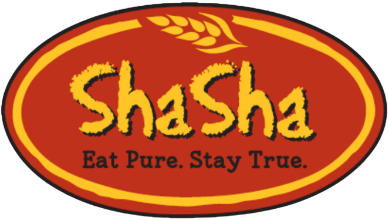Prebiotics and Probiotics Explained
If the thought of bacteria has you reaching for your hand sanitizer, you may not be overly pleased to know that your body is a hotbed of bacterial activity. Not all bacteria are bad and it’s the bacteria in your digestive system that helps you to effectively break down food and absorb its nutritional content. Without bacteria, life on earth would not be possible.
So central are bacteria to our wellbeing that the appendix, previously regarded as an expendable organ of questionable worth, is the quartermaster of bodily bacteria. It keeps a wide variety of bacteria fundamental to the effective digestion of food. Now that there are so many of us all crammed together, we share bacteria so regularly that the poor appendix has once more become obsolete.
Bacteria needs to eat too and our diets contain so much refined food that we rarely get enough of the fibre that feeds the good bacteria in our bodies. Without this nutritional input, bacteria will die. Despite our sharing bacteria with wild abandon, we simply can’t get enough from our neighbours and our digestive tracts will suffer without the good bacteria we need to effectively digest food.
Prebiotics are a form of dietary fibre that occurs naturally in many plant species. Prebiotics are imperative to your health as they cleanse your system and nourish the good bacteria that keep your colon healthy. Prebiotics consist of two fructooligosaccharides (oligofructose and inulin) which pass through the body undigested. As they nourish the good bacteria in your body, they provide improved digestion, promote your immune system, increase metabolism and improve the absorption of nutrients. Improved metabolism will see you burning more calories every day which means that you have more energy while increased absorption of nutrients will have you feeling healthier. A healthy digestive tract means a healthy, happy human.
You can get prebiotics from fruits, legumes and whole grains. Artichokes, garlic, leeks, bananas and onions are good sources of prebiotics. But alas (unless you are counting pizza as a vegetable) fruits, legumes and whole grains are sadly lacking from our modern diets. Supplements do help, but nothing quite takes the place of the real thing. If you live a busy lifestyle and don’t have the time to be soaking legumes overnight, there are some really convenient snacks that can make all the difference to your daily prebiotic intake.
Simple changes to your diet like choosing whole grain bread (or pizza crusts) will help to increase your prebiotic intake. There are a number of snacks that are packed with whole grains and they’re delicious too! One of the best examples is ShaSha’s Buckwheat Snack which contains inulin and promotes digestive health. Supplements are also available from health food stores. Treat your good bacteria to a great meal today.
Probiotics are the good bacteria that help to digest food. Next time we will look at probiotics and the role they play in promoting good digestion and health.

